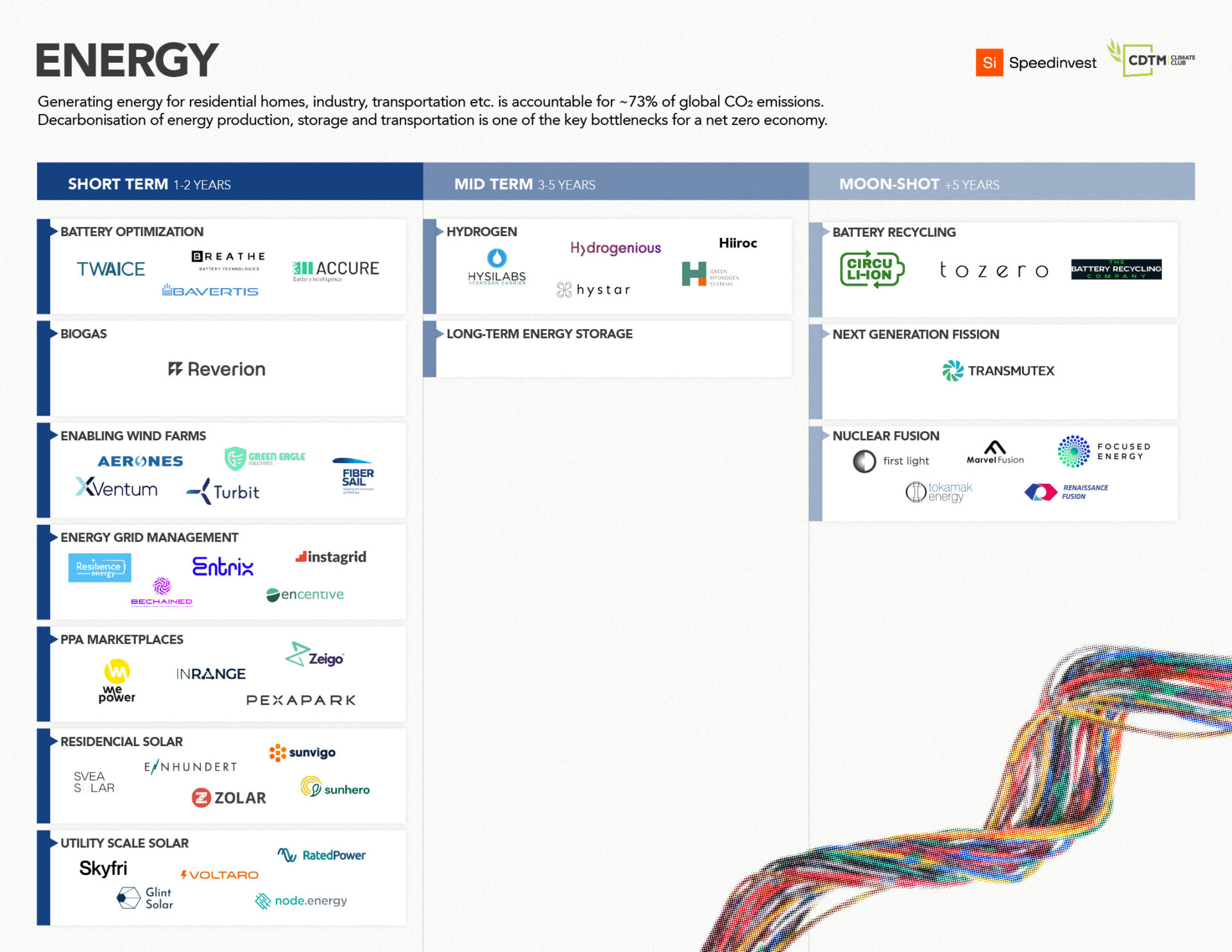
Generating energy for residential homes, industry, transportation etc. accounts for around 73% of global CO2 emissions. Decarbonisation of energy production, storage and transportation is one of the key bottlenecks for a net zero economy.
Our investment hypothesis is driven by:
1 Solar energy
- In order to reach the goals set by the European Green Deal, the EU needs to increase its solar energy production from 160GW to 870GW by 2030
- According to Lazards’ levelized cost of energy calculation, solar energy is already cost-competitive with conventional generation methods such as gas, coal and nuclear (min $29/kWh vs. min $65/kWh for coal)
- The main bottlenecks currently are sourcing solar panels (80% of solar panels are built in China), finding suitable areas for installation (rooftops or underutilized land area) and maintaining existing assets to keep optimal performance levels
2 Energy storage
- Renewable energy sources such as wind and solar are often subject to fluctuations (daytime/night time, summer/winter). Energy must be storable with minimal waste in both the short- and long-term
- There are various storage technologies (lithium-ion batteries, flywheels, heat storage, pumped-storage, hydrogen etc.), each with its set of advantages, disadvantages and different technological readiness levels
- Lithium-ion batteries have become ubiquitous mainly for short-term and limited capacity storage use cases. However the efficiency and sustainability of these batteries can still be increased by improving the longevity of batteries and developing end of life/recycling solutions
3 Hydrogen
- Converting sustainable energy into hydrogen could play a major role in the future by making fluctuating energy production plannable, transportable and enabling long-term storage
- Hydrogen could also play a huge role in decarbonizing logistics as it can be transported and used as a fuel in large vessels such as ships and trucks
- Currently, the conversion from energy to hydrogen and back is quite inefficient and thus not economically viable. More research and investments need to be done in this area



